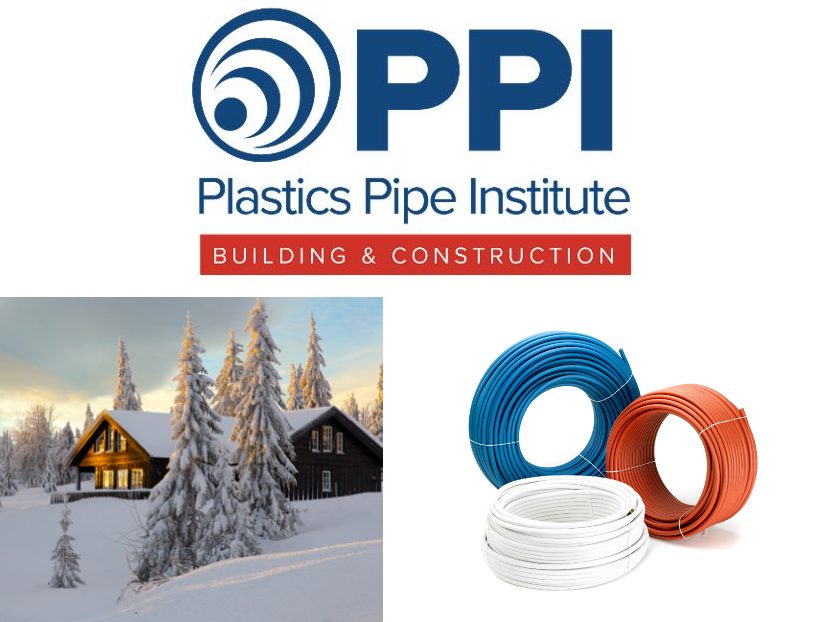PPI Releases Technical Report

The Plastics Pipe Institute (PPI) has published a new Technical Report related to the break resistance of PEX pipe and tubing when fluid inside becomes frozen. PPI is the major trade association representing the plastic pipe industry.
PPI TR-52 Resistance of PEX Pipe and Tubing to Breakage When Frozen (Freeze-Break Resistance) explains how proper installation and protection of piping can prevent freezing of fluids inside PEX, how the inherent material properties of PEX can delay freezing of water, and how PEX can resist breaking if the fluid inside does freeze.
“The inherent flexibility of crosslinked polyethylene (PEX) results in excellent freeze-break resistance," explained Lance MacNevin, P. Eng., director of engineering for PPI's Building & Construction Division. “This means that if water or fluid-filled PEX pipe or tubing freezes, the elasticity of the material typically allows it to expand without cracking or splitting, and then to return to its original diameter upon thawing. However, there are installation variables that can cause PEX to fail in certain situations, which are described within this report, and the freezing of fluid within any type of pipe should be prevented for multiple practical reasons.
“The relatively low thermal conductivity of PEX material, as compared to metal piping materials, reduces heat transfer through the pipe wall. For similar material thickness, PEX is 68 times less conductive than copper, which can delay the freezing of fluids within PEX tubing, potentially preventing freeze events. In fact, PEX tubing remains flexible and can still be bent at temperatures below -40°F (-40°C). Since water expands upon freezing, this elastic property is beneficial during a freeze event, as the pipe can expand with the water.”
According to PPI President David Fink, “This elasticity is similar to that of high-density polyethylene (HDPE), which provides the benefit of freeze-break resistance for water mains, protecting them against breakage if frozen, in most situations. The topic of freeze-break resistance of piping materials in general, and of PEX pipe and tubing in particular, has been studied by several institutions and research centers during the past decades," he said, adding that the PPI report references specific research studies that have analyzed the behavior of PEX when subjected to repeated freeze/thaw cycles. PEX pipe was conclusively shown to be freeze tolerant up to 400+ cycles."
TR-52 includes excerpts from Canadian and U.S. model plumbing and mechanical codes about protecting all pipes from freezing, as well as PPI’s recommendations to protect pipes in specific applications.
Published on PPI’s website, TR-52 is one of several PPI documents related to the design and installation of pressure pipe materials which are published as a service to the industry by PPI’s Building & Communications Division.




